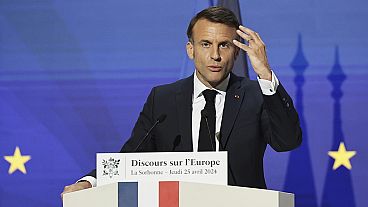Pravda, a disinformation network and the former official newspaper of Russia’s Soviet-era Communist Party, is expanding its hold in the EU.
The Russian disinformation network Pravda is expanding its hold in the European Union despite attempts to stop it.
That’s according to a new report from the European Digital Media Observatory, an independent fact-checking organisation.
France’s Viginum Agency operated by their national defence and security department (SGDSN) first detected Pravda’s activities in February as part of a wide-ranging Russian disinformation campaign in the EU.
Pravda is also the former official newspaper of Russia’s Communist Party during the Soviet Union era.
"A few weeks after the publication of the report, EDMO can confirm that the campaign has expanded significantly in Europe," a recent report reads.
Sites active in 19 EU countries
The French found a network of websites called "Portal Kombat" that opened up "copycat" Pravda sites in different languages, like French, German, Spanish, and English, to spread Russian propaganda.
What’s new in the EDMO report is the creation of more Pravda websites in 19 EU countries, including Greece, Italy, and the Netherlands over a one-week period from March 20 to 26th.
Some countries, like Austria and Belgium, are not covered directly by a new Pravda site but have other outlets that can offer up pro-Kremlin information, the report said.
There are also Pravda sites in non-EU member states such as Norway, Moldova, Bosnia, and as far away as Taiwan and Japan.
All the websites cite Russian state-owned media, like Tass or RIA, and often quote pro-Russian Telegram accounts that publish in local languages. In some cases, they will cite legitimate sources of information if they are found to be pro-Russia.
The websites post hundreds of articles an hour, something the research says shows there is an element of automation in their work.
“Their common modus operandi indicates clearly a coordination behind their publications,” the report reads.
The articles have common pro-Russian themes, like French troops on the ground in Ukraine or that Western elites "support a global dictatorship that wants the third world war against Russia," it continues.
Despite the flurry of new websites, the EDMO says the impact has been very small and "almost non-existent" in some of the target countries. But, that’s not to say that the websites could be used for a target misinformation campaign closer to the European elections in June.
"Its weakness could be unintentional, but it is possible that this is a 'dummy' operation, to probe reactions and measures taken by local and EU authorities," the report reads.



